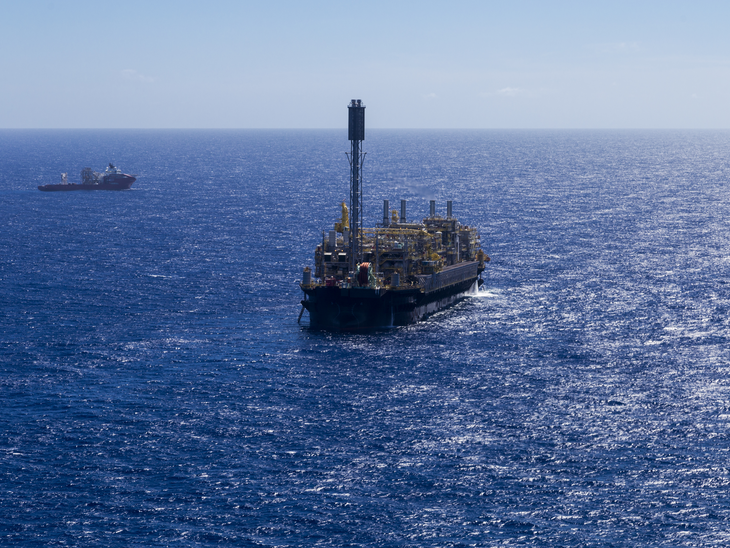
The company has the largest CO2 injection program in the world, which processed an amount of 10.6 million metric tons of CO2 for 2022
Petrobras Agency
Petrobras beat its record for Carbon Capture, Utilization and Storage (CCUS) in 2022, by injecting a landmark amount of 10.6 million metric tons (equivalent to 5.8 billion m3 of CO2). For comparison purposes, this amount corresponds to 27% of the total volume of gas injected in our pre-salt fields, and around 25% of the total amount of CO2 injected by the industry as a whole last year, according to the Global CCS Institute. This achievement confirms the company as a world leader in injecting CO2, and helps it to meets its strategic aims to reduce the impact of Greenhouse Gas (GHG) emissions in its operations.
Currently, all 21 platforms operated by Petrobras that are working in the pre-salt of the Santos Basin incorporate CCUS technology for Enhanced Oil Recovery (EOR), and performance is continuing to improve. Injecting the gas into the reservoir increases production efficiency and reduces the overall GHG emissions, based on emissions per barrel produced. This enables us to operate with low costs and less carbon, ensuring the project is competitive.
Our new record clearly demonstrates that Petrobras has the technical ability to overcome the challenge of dealing with the high amount of CO2 in the pre-salt fields. The company has not just pioneered injection technology in ultra-deep waters, but has become a leader in the area. It now operates the largest CCUS project in the world, based on the amount injected annually, and this helps to boost its strategy of dual resilience, both financial and environmental.
This pioneering work was given the OTC’s (Offshore Technology Conference) award in 2015, which is the equivalent of an Oscar in the oil and gas industry. In Brazil, Petrobras' CCUS project also received the Firjan Sustainability Award in 2020, in the Climate Change and Energy Efficiency category.
Global Approval
In global terms, CCUS technology has a crucial role to play in our low-carbon future. It has been recognized by specialists around the world as an essential solution for tackling global warming. The International Energy Agency (IEA), for example, highlighted that CCUS is one of the main enablers for achieving so-called Net Zero (zero net carbon emissions) by 2050, in its report “Net Zero by 2050” (IEA, 2021).
In addition, according to the Global CCS Institute in its latest report, the Global Status of CCS 2022, this technology is one of the critical tools that must be employed now to deal with the climate crisis, and without it, it will be impossible for us to achieve global climate goals.
New Challenges
Petrobras's experience with CCUS-EOR has contributed to the development of technology, has helped reduce costs and it has also demonstrated how it can be used safely in oil and gas industry operations, as well as other industries. Given the natural synergies from this activity with the oil and gas industry, Petrobras is examining other opportunities to develop a new business model on capturing and storing CO2 from industry, not just the pre-salt layer. The objective is to help reduce the emissions of not just the company, but other industries too.

Contact us